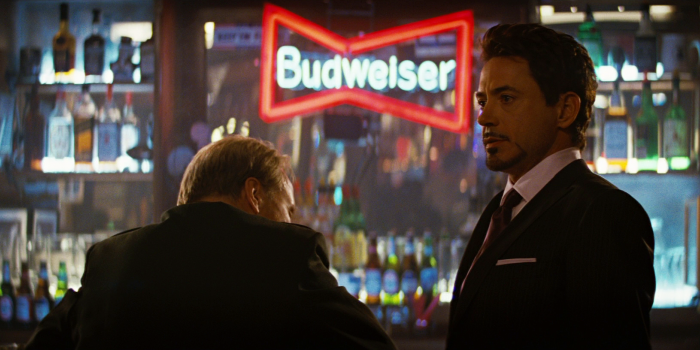
Cast: Albert Duponel, Alice Taglioni, Stéphane Debac
Director: Eric Valette
Country: France
Genre: Action | Crime | Thriller
Official Trailer: Here
Editor’s Note: The Prey opens in limited release on Friday, May 31st
Long has the genre hybrid been the refuge of the uninspired: it’s not for no reason that the overwhelming majority of successful cabin-in-the-woods horrors now are in fact horror comedies; the repetitive formulae of genre filmmaking wears audiences down, and often the easiest way to renew those formulae is to merge them with others. That’s precisely the aim of Eric Valette’s The Prey, which begins life akin to Dog Pound and ends it more like Stolen, and thus uses elements of the identities of two of this year’s films to find one of its own. That’s not to say it does so with any success, of course, and Valette’s mish-mashing of prison and chase narratives by way of an escape plot ably proves that just being different isn’t the shortcut to being any good.
Franck doesn’t find nuance in Duponel’s performance so much as he does a blank stare; defined as he is by little more than his solitary goal, he can only be met by Duponel’s look of confusion at each new plot point, and a great deal of running.
 Irreversible alumnus Albert Duponel takes the lead as convicted bank robber Franck, whom we first meet biding his time until his impending release will allow him to reunite with his wife and young daughter. A good guy despite his criminal proclivities—he earns an extra six months early on for fighting off a trio of Russians attacking his cellmate, whose child molestation conviction is to be imminently overturned—Franck doesn’t find nuance in Duponel’s performance so much as he does a blank stare; defined as he is by little more than his solitary goal, he can only be met by Duponel’s look of confusion at each new plot point, and a great deal of running. Last seen in the affably Allenesque comedy Paris-Manhattan, Alice Taglioni takes a far tougher role here, playing the hardened detective tasked with Franck’s recapture after he escapes. Scorned by her superior for allowing what he dismisses as feminine intuition to stand in the way of the job, she is one of the film’s all-too-few interesting characters, underexplored though her integral issues may be.
Irreversible alumnus Albert Duponel takes the lead as convicted bank robber Franck, whom we first meet biding his time until his impending release will allow him to reunite with his wife and young daughter. A good guy despite his criminal proclivities—he earns an extra six months early on for fighting off a trio of Russians attacking his cellmate, whose child molestation conviction is to be imminently overturned—Franck doesn’t find nuance in Duponel’s performance so much as he does a blank stare; defined as he is by little more than his solitary goal, he can only be met by Duponel’s look of confusion at each new plot point, and a great deal of running. Last seen in the affably Allenesque comedy Paris-Manhattan, Alice Taglioni takes a far tougher role here, playing the hardened detective tasked with Franck’s recapture after he escapes. Scorned by her superior for allowing what he dismisses as feminine intuition to stand in the way of the job, she is one of the film’s all-too-few interesting characters, underexplored though her integral issues may be.
It’s not entirely fair to judge The Prey on its dramatic failures, its generic constitution considered: this is first and foremost thriller territory, and despite efforts to engage on a darker level with the characters—one, thanks to a mid-point twist, quite successful—Valette is concerned primarily with setting this story in the realm of action thrills. The key problem is that he’s ill equipped to do so, the film never managing the smooth craftsmanship necessary to immerse us in its fast-paced plot and excite us with the occasional arrival of a sizeable set-piece. That’s primarily courtesy of the abrupt, erratic score by musician Noko, whose songs have appeared quite unobtrusively in several other films, but whose original composition is—at best—egregious. More fitting of a sex comedy than a thriller, the music serves only to exacerbate the film’s many tonal failings as Franck’s desperate cross-country fleeing is made to seem entirely farcical by the oddly optimistic notes.
Evidently intent on spicing up a thriller plot as old as the hills, Laurent Turner and Luc Bossi’s script does more damage than good, its halves thrown together so loosely they might be from entirely different films altogether.
 There’s an appreciable impact to much of the film’s violence, however, and Valette has a fine ability to play his actors’ physicality to reflect the literal pain they encounter, if not quite the emotional. Particularly when still within the confines of the prison, his action more intimate and aggressive, he conveys the gruesome bloodiness of violence, one particular fight scene sure to see those less-hardened viewers turn from the screen. Indeed, the more open and unconfined the story grows, the less successful is its action: the climactic cliff-top set-piece, for instance, is as hideous to behold as it is haphazard, the comparable camera manoeuvrability not gifting Valette freedom so much as it does the ability to indulgence himself, and thereby to alienate us.
There’s an appreciable impact to much of the film’s violence, however, and Valette has a fine ability to play his actors’ physicality to reflect the literal pain they encounter, if not quite the emotional. Particularly when still within the confines of the prison, his action more intimate and aggressive, he conveys the gruesome bloodiness of violence, one particular fight scene sure to see those less-hardened viewers turn from the screen. Indeed, the more open and unconfined the story grows, the less successful is its action: the climactic cliff-top set-piece, for instance, is as hideous to behold as it is haphazard, the comparable camera manoeuvrability not gifting Valette freedom so much as it does the ability to indulgence himself, and thereby to alienate us.
Evidently intent on spicing up a thriller plot as old as the hills, Laurent Turner and Luc Bossi’s script does more damage than good, its halves thrown together so loosely they might be from entirely different films altogether. In fact that’s precisely how it seems when we meet Taglioni in the midst of another investigation which we see unfold at much more length than ought to be afforded something so tangential; it’s almost as if the character was welcomed in from an abandoned draft discovered in the bottom of a desk drawer. As such, The Prey’s efforts to mask its own familiarity draw just as much attention to it as does the uninspired title: this is a remarkably dull movie, and it knows it.
[notification type=”star”]42/100 ~ BAD. The Prey’s efforts to mask its own familiarity draw just as much attention to it as does the uninspired title: this is a remarkably dull movie, and it knows it.[/notification]




Pingback: http://www.flatratecomputerservice.com/smartphone-repairs/()
Pingback: Manifestation Miracle Reviews()
Pingback: banheira()
Pingback: guitar picks()
Pingback: criminal defense attorney pennsylvania()
Pingback: recycle clothes for cash()
Pingback: porno()
Pingback: fastest way to lose weight()
Pingback: esta()
Pingback: Bonuses()
Pingback: Iraida()
Pingback: Harris Delosh()
Pingback: Best buy bulk order smartphone accessories()
Pingback: ecografe Doppler()
Pingback: curso de detetive profissional()
Pingback: swimwear()
Pingback: paintless dent repair training()
Pingback: plumbing repair Cherry Creek()
Pingback: medora centre()
Pingback: league of legends clothes()
Pingback: video competitions()
Pingback: playpen for dogs()
Pingback: Ottawa personal injury lawyer()
Pingback: Back links()
Pingback: garcinia cambogia 4.99()
Pingback: Shell Scanner()
Pingback: melissa&doug water wow coloring book()
Pingback: Embroidery()
Pingback: Laser hair removal nyc()
Pingback: Martial arts children()
Pingback: hot asian essay lesbians()
Pingback: seo minneapolis()
Pingback: minneapolis internet marketing()
Pingback: ebay deals forum()
Pingback: apple shooter()
Pingback: Peppa Pig()
Pingback: right here()
Pingback: professional onion creek plumber()
Pingback: Professional 3m auto window tint austin()
Pingback: how to make a game porn()
Pingback: th9 war base()
Pingback: ios anal design software()
Pingback: sacred 3 trainer()
Pingback: Ace Roofing Company()
Pingback: galveston beach house rentals()
Pingback: window tint lakeway()
Pingback: Schluesseldienst Berlin()
Pingback: biblical baby names()
Pingback: hair loss prevention()
Pingback: plumbers Austin tx()
Pingback: eyebrow looks()
Pingback: L’Mage Advanced Moisturizing Complex()
Pingback: popular baby names baby()
Pingback: CANON PIXMA iP100 Driver Download()
Pingback: plumbing repair onion creek()
Pingback: kit tatuaggi()
Pingback: local seo services minneapolis()
Pingback: sewer line repair rollingwood()
Pingback: Water Damage Restoration - Austin Texas Service Area()
Pingback: check it out()
Pingback: my singing monsters diamond cheat()
Pingback: Auralei Anti Wrinkle Cream Free Trial()
Pingback: cheats for boom beach()
Pingback: movietube()
Pingback: pest control converse tx()
Pingback: Insurance Policy Singapore()
Pingback: Drawing For Kids()
Pingback: business litigation attorney Austin()
Pingback: pa system rental singapore()
Pingback: second hand clothes wholesale()
Pingback: claw ring()
Pingback: mejor agencia de publicidada malaga()
Pingback: Probiotic and prebiotic()
Pingback: microsoft flight simulator 2016 release date()
Pingback: effect()
Pingback: surveillance()
Pingback: cara daftar bola ibcbet()
Pingback: Screen separator()
Pingback: Debarpan-Internet Entrepreneurship Coach()
Pingback: naples dog care()
Pingback: http://qualityfoundationrepairaustin.com/()
Pingback: Jasa Tukang Taman Banjarmasin()
Pingback: in-home dog care in naples()
Pingback: teensafe()
Pingback: YouTube()
Pingback: How To Get A Girl To Like You()
Pingback: bandar bola euro 2016()
Pingback: movietube()
Pingback: start up business loans()
Pingback: catalogue with children's clothes()
Pingback: anastasiadate()
Pingback: judi bola online()
Pingback: #3626;ติ๊กทู()
Pingback: download kevin gates()
Pingback: car seat pads for automobiles()
Pingback: ways people make money()
Pingback: wordpress web design houston()
Pingback: how to make money gta online()
Pingback: Vietnam travel insurance()
Pingback: Dr Field Harrison()
Pingback: Signature Bail Bonds of Tulsa()
Pingback: Mindy()
Pingback: clickbank()
Pingback: recruiting()
Pingback: private detective in Singapore()
Pingback: Computer Services Gainesville FL()
Pingback: diabetes review()
Pingback: Build business credit()
Pingback: bathroom scale bodybuilding()
Pingback: Alfred Coleman,()
Pingback: hcg injections()
Pingback: you suck at parking()
Pingback: punta cana que es()
Pingback: IATA Pet Cages in Sri Lanka in Sri Lanka()
Pingback: virtual reality news online()
Pingback: REGALO BODA()
Pingback: dog training collar()
Pingback: tenerife property()
Pingback: extraction de données sous excel()
Pingback: dessert()
Pingback: Crazy bulk D-bal()
Pingback: Trading Emini()
Pingback: research chemicals france()
Pingback: austin emergency plumbing()
Pingback: tenerife forum()
Pingback: Kaylee()
Pingback: 12 win()
Pingback: rosengard.tv()
Pingback: Thai Porn()
Pingback: fly swatter amazon uk()
Pingback: moving help()
Pingback: Corrupt Judge Robert G Creely()
Pingback: solar related()
Pingback: cat kennels naples()
Pingback: Crazy Bulk Coupons()
Pingback: http://kwel.me/00e8c8()
Pingback: free kik guide()
Pingback: carpet cleaning Austin()
Pingback: m88 wap()
Pingback: Homes For Sale()
Pingback: Social Media()
Pingback: Body Shop Brooklyn()
Pingback: Mirtha Quandt()
Pingback: latest gadgets()
Pingback: free instagram followers app()
Pingback: java courses in niit pune()
Pingback: duckbill check valve water flood diffuser()
Pingback: FreeRushSale()
Pingback: Best Nootropics()
Pingback: guest posting services()
Pingback: Plastic Surgery Plano TX()
Pingback: things to do in madrid()
Pingback: Outsourcing IT drift()
Pingback: USA Box Express()
Pingback: luxury()
Pingback: Run A Webinar Review()
Pingback: What Does most expensive jewelry Mean?()
Pingback: light strobe()
Pingback: one year bullshit fraud investigations()
Pingback: Natural Gemstone Jewelry()
Pingback: porno()
Pingback: Dong()
Pingback: Manhattan Home Design Reviews()
Pingback: BailBondsman()
Pingback: celeb news()
Pingback: mira mesa real estate()
Pingback: لعبة قمار()
Pingback: dog walking naples fl()
Pingback: exitus()
Pingback: porno()
Pingback: porno()
Pingback: Body Shop Brooklyn()
Pingback: Douglas Cotter()
Pingback: addium ingredient list()
Pingback: forskolin side effects()
Pingback: Jailbreak iOS 9.3()
Pingback: Singorama 2.0()
Pingback: Eulalio Tirado Lizarraga()
Pingback: Buy Forskolin Fuel()
Pingback: Decorative Concrete of Austin - Stained Concrete Flooring()
Pingback: john persons()
Pingback: lawn mower shop()
Pingback: http://clashroyalehack.androtransfer.com()
Pingback: Camelia()
Pingback: geil sex date()
Pingback: Airport Transportation()
Pingback: porno()
Pingback: computer forensics greensboro()
Pingback: free spin casino()
Pingback: lawn care tulsa()
Pingback: Future Electronics Montreal()
Pingback: Shaving Cream()
Pingback: binary options()
Pingback: candy saga()
Pingback: he has a good point()
Pingback: New home communities austin()
Pingback: Phenq()
Pingback: ADO Den Haag()
Pingback: Obsession Phrases Examples()
Pingback: The Lost Ways Review()
Pingback: resignation tips()
Pingback: SEO Trondheim()
Pingback: Oslo tannlege()
Pingback: no credit check loan()
Pingback: https://www.youtube.com/user/tijuanthedon1()
Pingback: Obsession Phrases Examples()
Pingback: new rock bands()
Pingback: Anika()
Pingback: free psychic love reading()
Pingback: sturdee residences()
Pingback: Medix College Reviews()
Pingback: stephen leather eBooks()
Pingback: Fleshlight()
Pingback: fue hair transplant singapore()
Pingback: fryzura meska a ksztalt twarzy()
Pingback: Instant Hair Straightener()
Pingback: Sacramento compounding pharmacy()
Pingback: Kamagra()
Pingback: Traditional Witchcraft()
Pingback: appstore sms app()
Pingback: cheat game android 2016()
Pingback: UK asbestos surveys and consultancy()
Pingback: freelance illustrator()
Pingback: Football boots()
Pingback: Foro mu online()
Pingback: Car AC Compressor()
Pingback: ideas for company name()
Pingback: llaveros para hoteles()
Pingback: dental bridge Mission Viejo()
Pingback: Kamagra()
Pingback: tormkey casino solution()
Pingback: judi bola()
Pingback: themilf()
Pingback: riparazione iphone()
Pingback: sleeping pills()
Pingback: easy webinar()
Pingback: what is the best home remedy for asthma()
Pingback: bountiful divorce lawyer()
Pingback: Article builder()
Pingback: male sex toys()
Pingback: best identity theft protection()
Pingback: vendita piante online()
Pingback: edarling()
Pingback: what to wear running()
Pingback: Inbox blueprint()
Pingback: Hulu Login()
Pingback: speargun()
Pingback: gonese()
Pingback: http:www.christiantshirts.co()
Pingback: http://cutt.us/LguB()
Pingback: junk car Austin()
Pingback: instant payday()
Pingback: peintre décorateur()
Pingback: Austin interior house painters()
Pingback: google hack()
Pingback: puno la paz bus()
Pingback: psychologist cedarhurst()
Pingback: cutlery set wedding gift satin()
Pingback: venta y alquiler locales malaga()
Pingback: stained concrete contractor in Austin()
Pingback: boligadvokater()
Pingback: austin permanent eyebrow()
Pingback: metabolic cooking()
Pingback: social media bots()
Pingback: 45minute()
Pingback: tms therapy nyc()
Pingback: instrumental background music for videos()
Pingback: massage()
Pingback: bra clear straps()
Pingback: nordstrom coupon 25 off()
Pingback: how do i make money online()
Pingback: passwords for brazzers()
Pingback: Bedside Lamps()
Pingback: Auto Detailing Puyallup Seattle Tacoma()
Pingback: professional resume writing()
Pingback: san antonio bail bonds()
Pingback: blow up slides for sale()
Pingback: Read This()
Pingback: Data Recovery Services()
Pingback: hackear clash of clans()
Pingback: Data Recovery Services()
Pingback: she said()
Pingback: Bank Merchant Accounts()
Pingback: Rafferty Pendery()
Pingback: Infotitan()
Pingback: neo2 scam()
Pingback: Rafferty Pendery Scientologist()
Pingback: Rafferty Pendery()
Pingback: follar()
Pingback: toshiba portege review()
Pingback: IT Support Ocala FL()
Pingback: Affiliate Trax Review()
Pingback: internet web hosting()
Pingback: Adult Toys()
Pingback: Actaclinicabelgica.be()